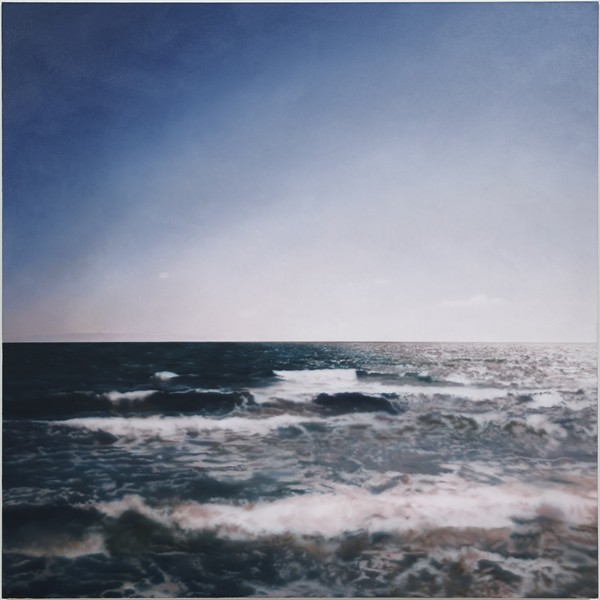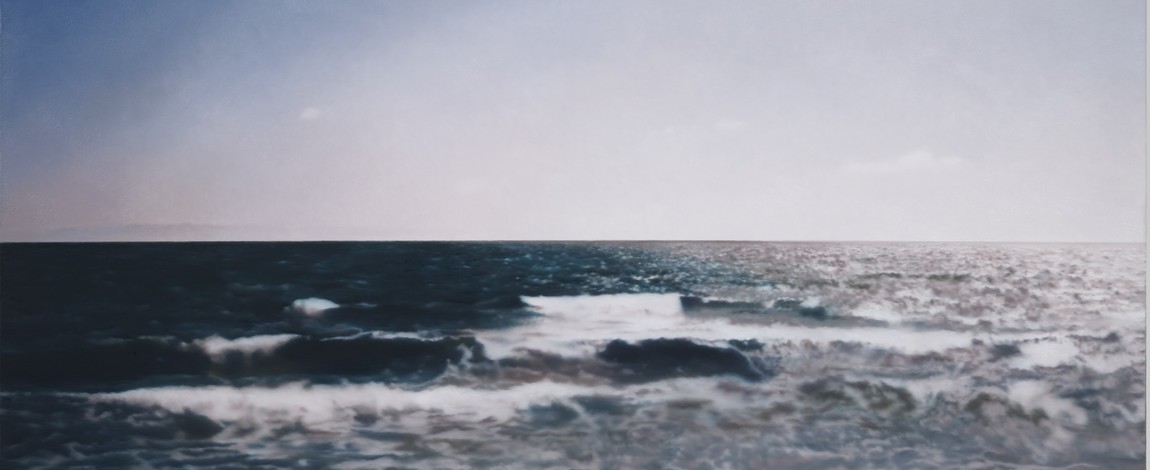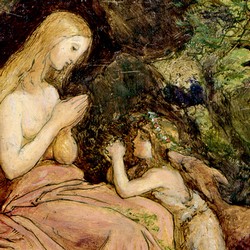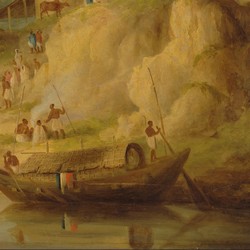
A few months ago, I talked about the well-known importance of networking, personalized in composer Josephine Lang; an easy excuse to hear one of her beautiful songs. Back then, I promise you the second part of this 19th-century networking story, that will serve us again to listen to the composer.
Felix Mendelssohn's and Robert Schumann's support allowed Josephine Lang to develop a career during the 1830s; she taught piano, sang at the Munich court, played piano at the cultural salons, and composed and published songs. It was an intense activity for someone with weak health; in June 1840, Queen Caroline Augusta saw her looking so unwell that she sent her to a spa to get her strength back. She met there Christian Reinhold Köstlin, a lawyer and a proficient poet and pianist in his leisure time; they fell in love and married two years later. Of course, once married, she only sang and played piano for her family; it would have been really eccentric for the wife of a professor at the University of Tübingen to work. She has her salon, and time passed between the social activities derived from her husband's work, the housework, and the children who arrived in rapid succession; little time remained for her to compose!
When her husband fell seriously ill the family economy was affected, let's not say when Köstlin died in 1856, leaving her alone with six children. She returned to music lessons and tried to publish her songs again, but in vain; nobody remembered Josephine Lang and no publisher wanted to take on the risk. In 1859, she asked for help. Her beloved Felix had died years ago, and she turned to a common friend, Ferdinand Hiller, and a friend of his who also greatly appreciated Mendelssohn, Clara Schumann.
They both rushed to her help. Clara Schumann haven't met Josephine Lang personally, but who could empathize better with her than she, who had widowed the same year, also after a painful illness of her husband, and with seven children? After all, things were a bit better for her; she was an excellent pianist who had never stopped playing concerts, and she had good friends who gave her full support. So, she arranged a benefit concert where she herself played some of Lang's works. On the other hand, Hiller asked Lang to send him some notes to write her biography; the health problems of two of his children delay this sending, but the biography was finally published in 1867 and confirmed the revival of her career: Josephine Lang became a successful composer again.
She died in 1880, at her sixty-five, of a heart attack. Until the last moment, she taught and composed; as she herself explained, the music gave her strength and consolation to confront the difficulties and misfortunes of her life, which were not few.
I suggest that we listen to Scheidenblick, a Lied composed by Lang in 1840 and published in 1841 within Op. 10, a collection of six songs worth listening to. I chose this one because it appears that it was a key piece in her life: Köstlin explained that he fell in love with his wife-to-be when he heard her perform this song T the spa. The very short poem is by Nikolas Lenau, who years later would inspire a cycle to Robert Schumann, Sechs Gedichte und Requiem, Op. 90. Lenau heard Josephine Lang's Lied played by herself at the piano, and admitted he was moved to tears.
We'll listen to Scheidenblick performed by mezzo-soprano Catriona Morison and pianist Malcolm Martineau. pay attention to this wonderful voice and to her way of saying, we're listening to her next May in Barcelona!
Als ein unergründlich Wonnemeer
Strahlte mir dein seelenvoller Blick;
Scheiden mußt' ich ohne Wiederkehr,
Und ich habe scheidend all' mein Glück
Still versenkt in dieses tiefe Meer.
Like an unfathomable ocean of joy
Your soulful gaze shone for me!
I had to take leave, knowing I would never return,
And as I departed, I quietly sank
All my happiness into this deep ocean.
(translation by Sharon Krebs)



 Tomorrow...
Tomorrow...













Comments powered by CComment